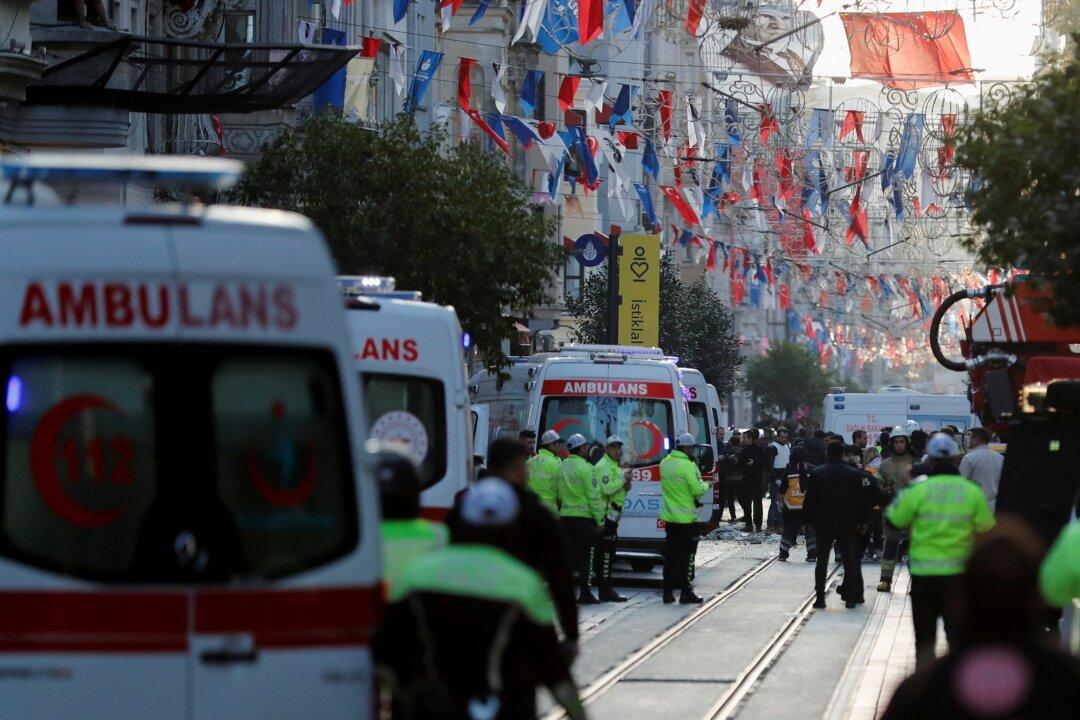In a sign of strained ties between Turkey and the United States, Turkish officials declined to accept Washington’s condolences after a deadly bombing in the heart of Istanbul that left six people dead on Nov. 13.
According to Turkish authorities, who swiftly detained the alleged bomber, the attack was planned and carried out by the Kurdistan Workers’ Party (PKK) and its Syrian offshoot, the People’s Protection Units (YPG).





